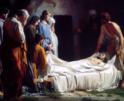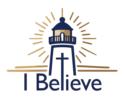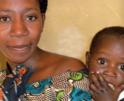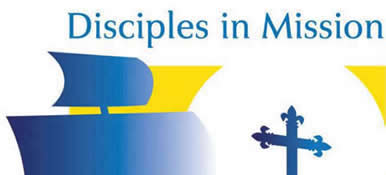
Faith
He wondered if the Pareto Principle -- a business theory that 80 percent of the work is accomplished by 20 percent of the work force -- exists in Catholic parishes. ... What he found left him speechless.
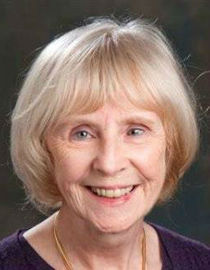
Abbott
Matthew Kelly is an interesting person. Born in Australia, he is a partner in a Chicago-based consulting firm working with top tier businesses and Fortune 500 companies. He is also a life-long Catholic and a speaker at Catholic events. Some years ago he heard a seasoned pastor comment that, "it doesn't matter where you go, you will discover the same 50 people do everything in a parish." Matthew Kelly decided to find out if this is an accurate assessment of parish life. There was no research to corroborate or disprove the pastor's statement so he conducted his own study, at first through informal conversations with pastors he knows, then, branching out to collect hard date from parishes coast to coast. He wondered if the Pareto Principle -- a business theory that 80 percent of the work is accomplished by 20 percent of the work force -- exists in Catholic parishes. He looked at two areas of parish life: volunteerism and financial support. What he found left him speechless. Most Catholic parishes are nowhere near the 80/20 level. Here are his findings:
-- 6.4 percent of registered parishioners contribute 80 percent of the volunteer hours in a parish
-- 6.8 percent of registered parishioners donate 80 percent of financial contributions
-- There is an 84 percent overlap between the two groups
-- Roughly 7 percent of Catholic parishioners are doing almost everything in their faith community and paying almost entirely for the maintenance and mission of the parish.
From this research, Mr. Kelly asked: "What is the difference between engaged Catholics and disengaged Catholics?" That only 7 percent of Catholics are engaged enough to give their time, talent, and treasure to their parishes is "shocking news." The good news, however, is the incredible amount of good work that is accomplished by so few. If 7 percent can do so much -- he calls the people in this group 'Dynamic Catholics' -- "imagine what 14 percent could do. Not to mention what 21 percent or 35 percent could accomplish. Our potential is incredible."
He refers to the Catholic Church as a "sleeping giant." A shift from 7 percent engaged parishioners to 8 percent in one year is, he says, "a game changer." The result would be an increase in volunteer hours making it possible to serve the parish and wider community in more ways, and an increase in the offertory collection that would enable the parish to invest in ministries. A 1 percent increase would go a long way to making a parish a more vibrant community of faith. Not content with moving just 1 percent in one year, Mr. Kelly wondered what could happen if, over the next seven years another 1 percent a year moved into the engaged category. "One percent each year. ... imagine the incredible outreach, service, and spiritual development your parish could deliver.... This is the 1 percent that could change the world. If we can focus on engaging 1 percent more of our parishioners in a really intentional way each year, we can literally change the world." A grand prediction.
Once again, he started looking for answers. What kind of people make up the 7 percent? Mr. Kelly quickly discovered that they are not all the same, and they are not perfect, but he was confident that there must be some commonalities among them. He continued his research, saying with a mix of hope and anxiety, "The future of the Catholic Church depends upon us finding out what makes this small group of Catholics so engaged. If we cannot identify what drives their engagement, we cannot replicate it."
His research turned up more than 250 traits that the 7 percent had in common, and he sorted these under four broad categories: Prayer -- the 7 percent are committed to daily prayer; Study -- they are committed to ongoing formation and learning; Generosity -- they are generous in all ways, time, talent, and treasure; and Evangelization -- they are not afraid to share with others the importance of God in their lives.
The result of this research is Matthew Kelly's book: "The Four Signs of a Dynamic Catholic." Many parishes in the archdiocese and across the country have given this book to parishioners to help them see where these traits are present in their lives. Reading a book does not make a dynamic Catholic, but attending to these four traits can. Matthew Kelly claims dynamic Catholics can change the world, one percent at a time. The time to start is now.
SUSAN ABBOTT IS COORDINATOR OF PARISH OUTREACH FOR THE ARCHDIOCESE OF BOSTON'S OFFICE OF PASTORAL PLANNING.
- SUSAN ABBOTT IS EVANGELIZATION ASSOCIATE, OUR LADY OF GOOD VOYAGE SHRINE.
Recent articles in the Faith & Family section
-
Holy Thursday and Good FridayFather Robert M. O'Grady
-
Faith is a verbArchbishop Richard G. Henning
-
Giving Mothers and Babies a Chance in the MissionsMaureen Crowley Heil
-
'The Chosen: Last Supper' premieres in Dallas, bringing Holy Week to the big screenFather Patrick Briscoe
-
Be free: Experiencing the promise of the Jubilee YearDr. R. Jared Staudt

